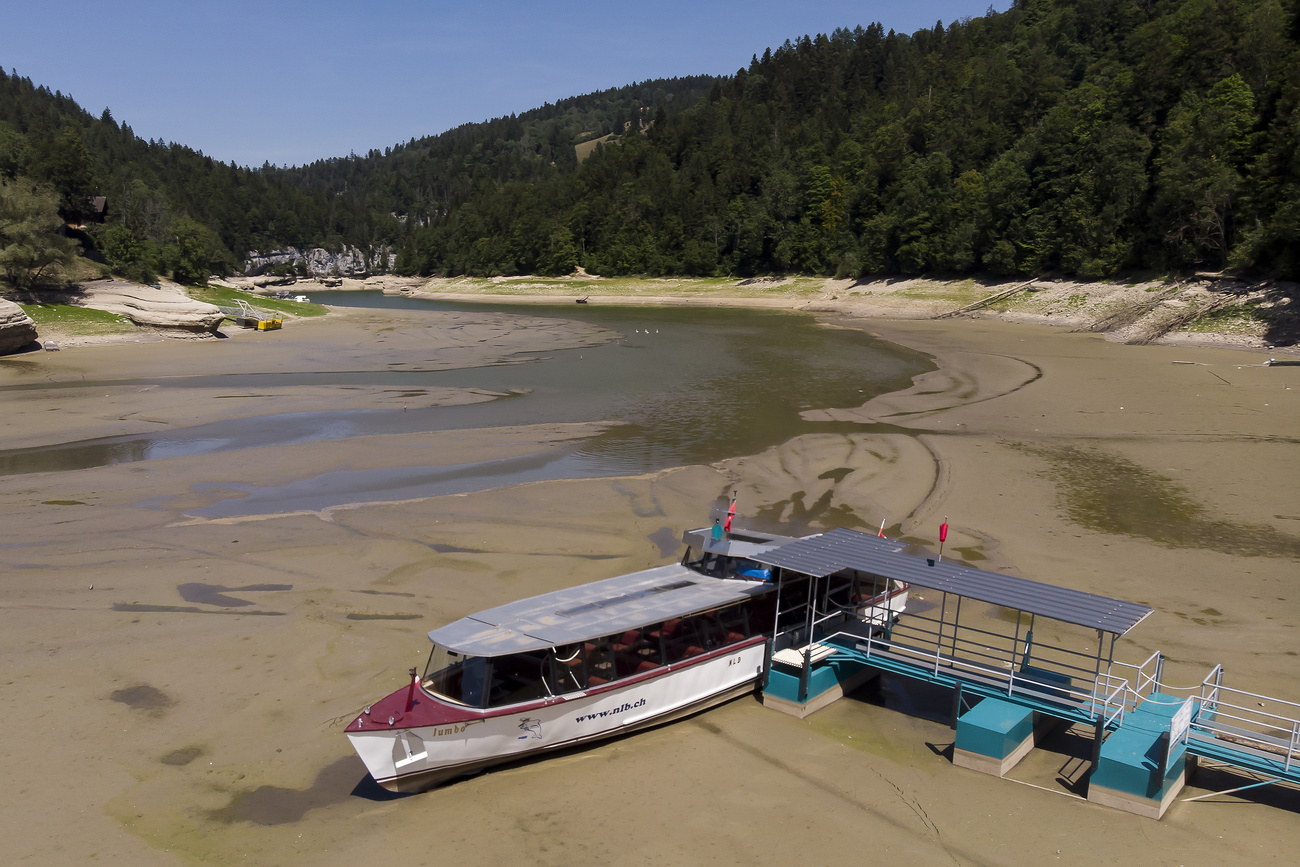
Swiss brace for heatwave and water shortage

An increasing number of municipalities have restricted the use of water as large parts of Switzerland cope with a heatwave.
Regions in eastern as well as western parts of country announced a ban on pumping water from rivers, brooks and ponds.
Some municipalities have also prohibited the filling of private swimming pools, use of water sprinklers or washing cars.
Some stretches of the Rhine river and Lake Constance have been closed due to low water levels.
The authorities have also advised people to refrain from lighting fires in forests.
The Swiss government warned of health problems, particularly for elderly people in southern regions, because of the heatwave.
Top temperatures reached 38.1°Celsius (100.5°Fahrenheit) in Geneva on Tuesday, while the city of Basel recorded 36.5°C, according to MeteoSwiss, the state-run weather agency.
This is short of 39.7°C measured in Geneva seven years ago and 41.5°C in southern Switzerland back in 2003.
More

In compliance with the JTI standards
More: SWI swissinfo.ch certified by the Journalism Trust Initiative





























You can find an overview of ongoing debates with our journalists here . Please join us!
If you want to start a conversation about a topic raised in this article or want to report factual errors, email us at english@swissinfo.ch.